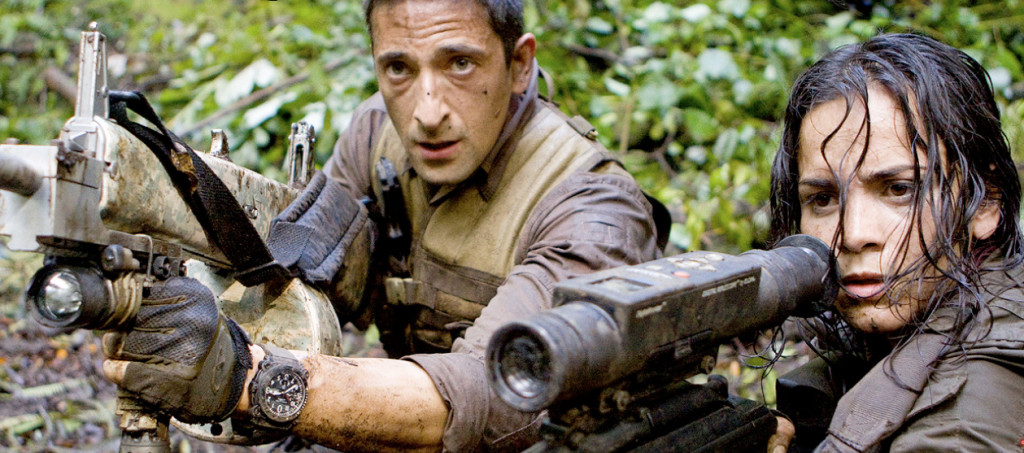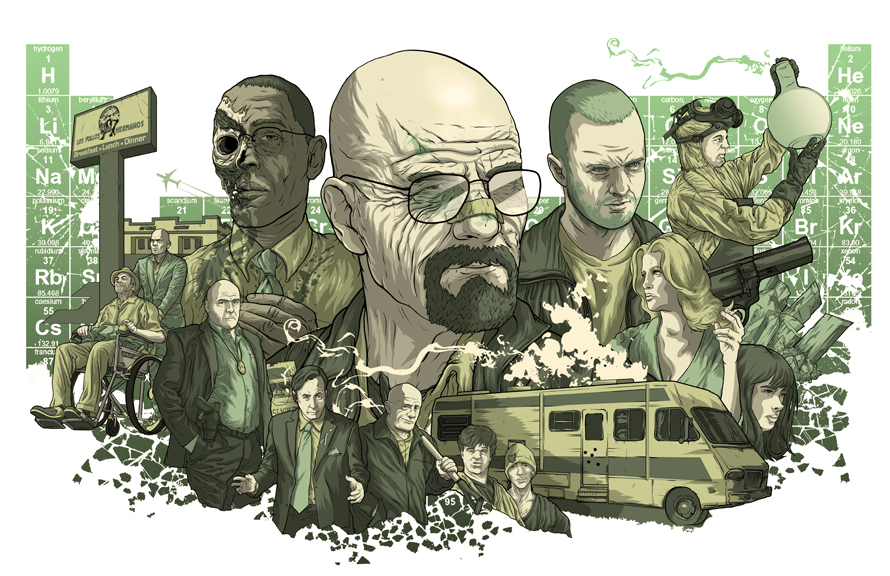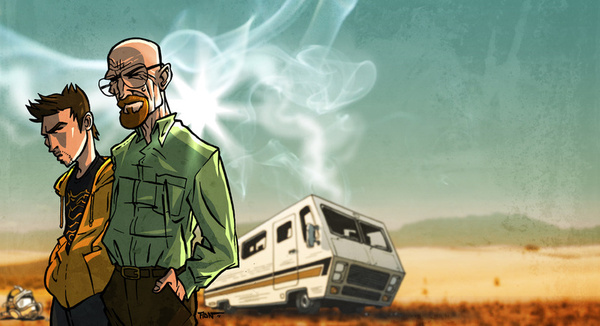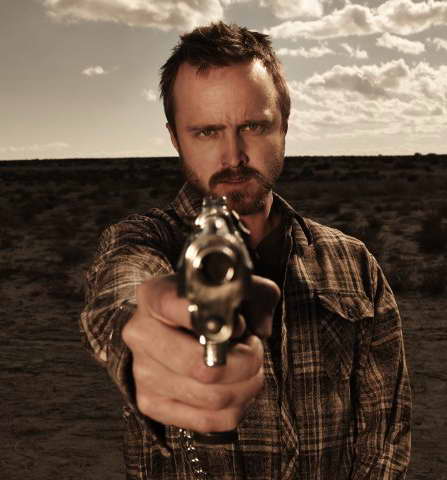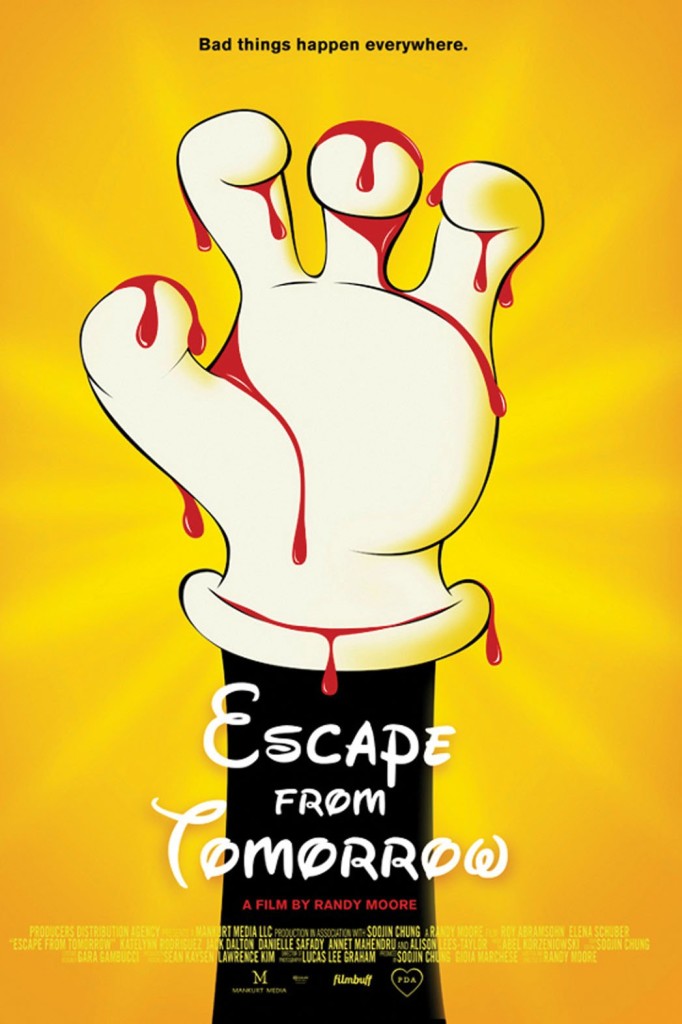Search Results for: F word
Genre: Thriller/Horror/Supernatural
Premise: An American doctor in the Congo must join a United Nations military unit to investigate a series of strange killings in the jungle.
About: Well, it’s Halloween, so what better script to review than the number 1 script on the 2010 Blood List! The Blood List is an offshoot of the Black List (unaffiliated) that ranks the best Horror scripts of the year. The pickings can be a bit spotty at times so even the top-ranked scripts can be suspect. The author of the script, David Portlock, has been at this for a long time (he wrote a produced short all the way back in 1996) but is yet to break through and get that coveted feature credit we all dream about.
Writer: David Portlock
Details: 109 pages – “August Draft” – 2010
If you’re anything like me, you’ve spent at least 10 hours this weekend looking for the perfect candy bag for trick-or-treat Thursday. I’ve settled on a 10 gallon white kitchen bag but that may change between today and tomorrow. That 20 gallon black Hefty is looking awfully tempting. Now when it comes to trick-or-treating, I’m a traditionalist. I believe that if someone doesn’t give you a treat, you HAVE to trick. So I’m currently amassing a list of tricks I’m going to play on people. Let’s just say Halloween’s going to be egggg-celent (get it? Eggs? Cause I’m going to use them on houses!).
You’re probably curious what I’m going to be for Halloween. Well, due to the line of work I’m in, it’s down to either a title page or a parenthetical. So if you’re in Hollywood Thursday and see two giant parentheses walking around with the word “sarcastic” in between them, chances are it’s probably me. Come say hi, but only if you’re a parenthetical yourself.
Oh yeah, Dark Continent. So let me tell you why I picked this script. I’m tired of seeing the saaaame horror scripts over and over again. Haunted houses. Zombies infest a town. A masked killer takes over a community. Found footage. When you read, you’re always looking for something different. Because if someone can give you a new concept or a new spin on an old concept, chances are the choices WITHIN the script will be different as well. Weird creatures (possibly zombies?) in Darfur? I’ve never seen that before. When coupled with the script already being endorsed in another arena, I was in.
Dark Continent reels you in right away. We’re in the Congo. Sudanese soldiers have snagged a poor, unsuspecting girl and are about to rape her when someone (something?) comes out of nowhere and obliterates the would-be rapist, killing him and his soldier buddies as well. We don’t get a good look at the guy but it’s safe to say he’s a freak of nature.
Across the way, an American doctor named Anne Langly is trying her best to keep a local village healthy on a steady diet of band-aids and cough drops. And you thought Obamacare was bad. In between angry phone calls to the United Nations for more medical supplies, Langly hangs out with the senior doctor in the region, an old, wise French woman named Mama Piquot.
That is until Mama Piquot disappears. Coupled with a rash of killings in the area, the UN sends in some soldiers to check out what’s going on. Anne cons her way into the group so she can find her friend and they all head into the jungle. There they encounter even more killings (sometimes entire villages!) and get glimpses of who’s doing the killings: Super-human Africans.
These men can leap up to 30 feet in the air, have the strength of 100 men, and are smart enough to beat any pop quiz you throw at them. But how is this happening? What’s (or who’s) creating these super-humans? They’ll have to figure it out fast because if they don’t find a weakness or a way to take these mega-humans down, they’re probably not making it out of this jungle alive.
Okay, so one thing’s clear. Portlock really likes his 80s movies! “Dark Continent” is essentially a cross between Predator and Aliens, with a Congo’ian twist! We even have the strong female protagonist leading the charge. Ah, but Dark Continent failed to do exactly what I was assured it would – make unique choices. Everything here goes exactly the way these stories always do, and that made me script-sad. It made me change my parenthetical costume to “(disappointed)”.
What killed it for me was the “super humans who are being tested on” plot reveal. The reason I hate this plot choice is because it’s the plot choice of 70% of the video games on the market. Secret testing creates super-human monsters or people, and our characters have to kill them all. With video games being the bottom of the barrel in terms of writing, it’s wise not to get inspired by their writing. There will always be exceptions, but this is a rule I’m pretty confident you should stick by.
Another thing I couldn’t get on board with was the “villain by number” approach. There wasn’t a specific villain here. No Jason Voorhes, no Jaws shark, no Predator, no Queen Alien. Just a bunch of vague, scary warriors. Without specificity, we never have anyone to root against. I mean, that’s why Predator was so cool. He was a single badass alien hunter. We knew who he was, formed an opinion on him, and wanted to see him go down. It’s hard to form an opinion on a group of vague superhuman baddies. It’s too general. And like I always say, “general” is bad in screenwriting. You always want to be specific.
Also, the more of these “kidnapping” scripts I read, the more I’m realizing that unless the person kidnapped is a child or a young woman, we don’t care whether our hero saves them. A man? We don’t care. An old person? We don’t care. And in this case, it’s Mama Piquot’s kidnapping that inspires Anne to join the chase. I know it’s harsh. I know what I’m saying is cruel. But I don’t care if an old person gets taken. I just don’t. They lived a full life. They’ve contributed to the world what they’re going to contribute. In movies, it’s just hard to root for kidnapped seniors. I’d love to be proven wrong here. Can you guys think of any “kidnapping” movie where the person taken is either a man or an older person and the story still works? Cause I can’t.
In the end, though, the reason Dark Continent doesn’t pop is because the execution was too bland. I’ve said this so many times on the site but if I’m 30 pages ahead of the story (in other words, I have a general idea of where the story is going up to 30 pages in advance), I’m bored. As a writer, it’s your job to play with expectations. It’s your job to lure readers into your trap. Make them think they know where the story’s going, then pull the rug out from under them. I didn’t get that here, not even once. And even worse, when the mysteries were solved, the answers were too cliché (super-humans who were being tested on – I kid you not, I read a script last night with this same plot point – that’s never good, when you use a plot point that could be in the very next script your reader reads).
Dark Continent has some near-perfect spec WRITING. Every line here feels and sounds like a pro script. So I can see why it was considered better than many of its competitors that year. It was the storytelling that was too bland. Bland storytelling is every writer’s worst enemy, which is why we should all strive to take chances when we write. I think Portlock has the ability to turn this into something cool. It’s just a matter of challenging himself more. Not going with the easy “been-there, done-that” choices.
[ ] what the hell did I just read?
[x] wasn’t for me
[ ] worth the read
[ ] impressive
[ ] genius
What I learned: If you’re not trying to surprise your reader when you write, you’re not doing your job.
Genre: TV pilot
Premise: (from AMC) Set in the early 1980s, the series dramatizes the personal computing boom through the eyes of a visionary, an engineer and a prodigy whose innovations directly confront the corporate behemoths of the time. Their personal and professional partnership will be challenged by greed and ego while charting the changing culture in Texas’s Silicon Prairie.
About: This is one of the next big shows coming to AMC, the network that brought you Mad Men, Breaking Bad, and The Walking Dead. As for the writers, I’ve actually reviewed one of their scripts before and WOW have they improved. I thought their spec effort, The Knoll, was below par, with my main beef being that it was stick thin. But this is the polar opposite. Very rich and detailed and deep. Good job guys!
Writers: Christopher Cantwell and Christopher Rogers
Details: 64 pages
Breaking Bad is over. Mad Men has only one season left (well, two halves of one season actually – in a sly or slimy move, depending on who you talk to). Which leads to the inevitable question, what does the network producing the best shoes on television have next? Word on the street (or from a Google search) says that AMC has over 60 shows in development. So they’ve got plenty of potential successors. “Halt and Catch Fire” is first trying to take the baton. Will it succeed? Let’s find out.
It’s 1981. You know, when E.T. came out? When Michael Jackson had only a couple of facial reconstruction surgeries in the rear-view mirror (the MAN in the rear-view mirror)? And when the personal computer was just starting to hit the world. Computer systems salesman Joe Macmillan is someone who knows the PC boom is coming. The problem is he’s also suicidal, and actually drives his car off a cliff in the opening scene in an attempt to meet his maker. But he survives. Bummer. Or not bummer?
Joe, who used to work at IBM (and hated it), decides to use this second chance to take over the PC industry. He’s heard of this computer innovator named Gordon Clark, a bar-brawling family man (yeah!) who spends his nights pulling apart and putting back together Atari 2600s. Joe specifically comes to IBM rival Cardiff-Giant (at the time just a software company) to work with Gordon. His goal? To build a PC that’s better and cheaper than IBM’s.
And that’s exactly what they do (with a lot of resistance on Gordon’s part). They take one of IBM’s PCs and they reverse engineer it. Which is kind of a legal no-no. But Joe doesn’t stop there. He actually CALLS IBM and tells them that he did it. Which gets every lawyer within 5 miles of IBM’s headquarters together to take down Cardiff. What’s going on? Is Joe trying to destroy his own company?
Not exactly. In a somewhat difficult-to-understand development, the only way for Cardiff to avoid getting sued into bankruptcy is to pretend like they were working on a PC all along. This forces Cardiff’s top brass to allow Joe to head up the PC side of the company, where he of course brings with him Gordon, and a plucky (yet attractive!) young computer genius from a nearby university, Cameron. The three will do the impossible. They will take on the biggest computer corporation in the world and try to beat them at their own game – making PCs.
Well, I don’t really know what I just read. I just know it was good! Almost an impressive. See, here’s what has me tripped up. This is a show about a company called “Cardiff-Giant” competing with titan IBM in the early days of the personal computer business. The thing is, I’ve never heard of Cardiff-Giant. Are they an also-ran company that eventually succumbed to IBM? Did Cardiff-Giant merge into some other famous company that’s still alive today? Or is this all just fiction? I mean, the Cardiff Giant IS one of the most famous hoaxes in history – a ten foot tall mummified man. So is the company title a hint that there’s more to this show than meets the eye? I don’t know!
Luckily, this is a really well-written pilot with a lot of good stuff going on. The first thing you notice about “Halt” is the irony (always use irony in your ideas if possible guys!). This is the computer business, a place where we expect dorks to huddle in their closets and basements and build computer boards. Which does happen here. But one of our two leads starts bar fights and the other is a ruthless closer that would make Alec Baldwin’s character on Glengary Glenn Ross feel like a spineless chump. These don’t feel like the geeky techies we associate with this industry, instantly giving the show some edge.
And Chris and Chris not only built those characters ironically, but used them to instill a lot of the conflict that drives the script. Joe is a suicidal dick who never takes no for an answer, and Gordon is a frustrated family man who isn’t afraid to tell someone to fuck off. The two don’t really like each other (or each others’ contrasting styles) and that adds a lot of fire to their scenes. Conflict, conflict, conflict people. It’s the oldest dramatic tool in the book. It’s gotta feel natural (you can’t force it) but if you set the characters up right and they’re naturally butting up against each other, the scenes will write themselves.
And the script just made some cool choices along the way. One of the easiest ways for me to spot a bad writer is to read a scene play out the exact way I’ve seen it play out 6000 times before. Only the good writers say, “How can I do this differently?”
There’s a scene early on where Joe needs an engineer for their group. So he goes to the local college to look for one. Now it’s important to see how this scene would’ve been written by a bad writer. We probably would’ve shown a professor type lecturing his students, and then a particularly difficult question would’ve been posed that stumped everyone, and our plucky young student, Cameron, would’ve answered it in an unexpectedly clever way. Joe would’ve been waiting in the wings, witnessing this, then caught up to Cameron afterwards and asked if he could talk to her.
Here’s how the scene went instead. Joe works his way in front of the class and tells everyone who wants to be an engineer to raise their hand. He’s going to list off several categories. Every time he lists a category they don’t have experience in, they have to lower their hands. He lists a bunch of stuff (electrical engineering, software design, microprocessing, etc.) and each time, more and more hands go down until there are three left. Of those three, he asks each to tell him one thing that will be true about computers 10 years from now. They each give their answer. Cameron ends up giving the best one. Macmillan says, “See me after class.”
I haven’t seen that scene before. And those scenes don’t just come to you off the top of your head. You have to fight for them. You have to go through a couple of cliché scenes until you find them. And the writers who are willing to put forth that extra effort and find that fresh take on a scene are typically the ones who succeed.
Speaking of Cameron, I loved how the Chris’s added ANOTHER layer of conflict within this three-person team. Later on, after Joe discovers Cameron, he gets drunk and sleeps with her. Realizing he screwed up everything, he ditches her the next morning. Later, however, when he becomes in charge of Cardiff’s PC division, he needs that engineer still. So he must go groveling back to this girl that hates him and ask her to join the team. She reluctantly does, and now we’ve got one big unhappy family.
We also have a boss who hates Joe. We have a rival (his old boss from IBM) who hates Joe. Everyone seems to hate these guys. And that’s PERFECT for a show because it creates drama. It creates resistance. It creates conflict. That’s what you need!
Now not everything is blueberries and soft shell tacos here. I had a couple of issues. Gordon’s character was inconsistent. He starts off as this guy who beats people up in bars. But when he meets Joe, he becomes meek. This tends to happen when you try and create two alpha males. In the scenes, one of them has to become dominant, and by association, the other’s going to disappear a little. However, Gordon disappeared too much. I liked him better when he would beat somebody’s ass. I hope they go with that guy in the show.
And also, this pilot was so heading for an impressive before the “Cardiff PC Division” plot point. This whole time, Joe looked like he was cleverly orchestrating this really cool plan that was going to outsmart everyone – an outsmarting I was dying to see – but it turns out they sort of accidentally get asked to start this new PC division because of a weird legal loophole that was never clearly explained. It drives me NUTS when major plot points are fudged over by unclear plot developments. I was hoping for more there.
Still, everything else here was top notch. Is it the next Breaking Bad? Too early to tell. I gave AMC show Hell on Wheels the same grade I’m giving this and thought it was headed for big things. But that show was bigger than AMC was capable of making it. It needed Boardwalk Empire dollars to do it justice. “Halt” doesn’t require a big production budget, so it will be all about the characters and the story. They’ve got some cool characters. Let’s see where the story goes from here.
[ ] what the hell did I just read?
[ ] wasn’t for me
[xx] worth the read
[ ] impressive
[ ] genius
What I learned: QUESTION MARK CHARACTERS – In a lot of good TV shows, you have characters who are question marks. You don’t know what they’re capable of or what they’ll do. You need to almost present them as ticking time bombs, waiting to explode. Here we have one protagonist who’s willing to beat the shit out of people (and get beat up) if they get in his way, and another who drives his car off a cliff at the beginning of the show, trying to commit suicide. Those are two big question mark characters if you ask me.
Genre: Drama
Premise: Cutting between two timelines, one that focuses on a famous author father, the other his emotionally reclusive daughter, we watch as the two struggle to overcome their inner demons.
About: Fathers and Daughters ranked number 12 on the 2012 Black List with 25 votes. It has since been cast with Russell Crowe and Amanda Seyfried and will be directed by well known Will Smith collaborator, Gabriele Muccino, who directed The Pursuit of Happyness and Seven Pounds. Not much is known about writer Brad Desch. He appears to have a couple of TV shows in development but this seems to be his breakthrough script.
Writer: Brad Desch
Details: 116 pages
Over the past couple of years, I’ve received these periodic e-mails of, “Have you read Fathers and Daughters yet? It’s really good.” And, “Fathers and Daughters. You have to review this. Great writing!” Of course, my response to these people is the same as yours would be: “How could a script titled ‘Fathers and Daughters’ be good?” Granted, it’s probably slanted towards a female audience, where it evokes more of an emotional response, but even taking that into consideration, it’s a very bland title, bordering on over-sentimental. So I put it off and put it off and put it off, until recently, when some actors signed on, reuniting Les Miserables cast members Amanda Seyfried and Russell Crowe. Now that I knew the project was moving forward and I could actually imagine (the assumed) father and daughter, I decided to give it a shot.
Author Jake Davis may remind you of Bradley Cooper’s character from Silver Lining’s Playbook. He’s just been released from the crazy house and is ready to start his life again. The big difference is that Jake has won two Pulitzers and is considered by many to be the greatest living author in the world. But just like Cooper’s character, Jake’s got wife baggage. His wife was killed in a car accident while Jake was driving. Since the two have a daughter together, Katie, that leaves only Jake to raise her.
A task complicated by his mental hospital stay. Actually, while Jake spent 18 months getting better, Katie’s Aunt and Uncle took her in, and in the process fell in love with her. The last thing they want, now, is to give Katie back to Jake. Jake tells them to screw off and begins a very difficult journey, trying to carve out a life for himself and Katie in the most expensive city in the world, Manhattan.
During this time, we intercut with the present, where Katie is a grown adult pursuing a career as a child psychologist. Katie is an emotionally void human being. She doesn’t feel ANYTHING, and as a result, stumbles around Manhattan, sleeping with any guy she meets, never remembering their names the next morning. In fact, one guy, who realizes Katie doesn’t like him, asks her why she had sex with him. She replies, flatly, “Because I didn’t get a chance to go to the gym today.”
Things begin to change for Katie, however, when she meets a couple of people – a young orphaned girl named Lucy, who hasn’t spoken a word since her druggie parents were killed. And then Cameron, a documentary filmmaker who manages to charm Katie enough to get beyond her standard one night stand. Both begin to give Katie purpose, and help her emerge from her shell.
From there we keep jumping back and forth between the past and the present. Jake’s new novel bombs, forcing him into a job he hates in order to keep Katie in private school. And Present Katie struggles with feelings for Cameron she’s never had before. (spoiler) Still torn up by her father’s death, she refuses to love, pushing the only man who can make her happy away. Will Katie change? And what exactly is the flashback storyline leading up to? What is it about Jake that we don’t know?
I’m getting better at understanding how these character pieces work. You guys know me. I want a big goal in my story driving the characters. Without that, the story tends to sit there and get boring. However, character pieces don’t always operate with big goals. Instead, they utilize dramatic questions to drive the story. The question in Adult Katie’s storyline is “Will she be able to love again?” The writer hopes that that question is compelling enough to keep you reading until the end. Is it? I would say yes. There’s something about Katie where you want to see her succeed.
But the question I always ask these character piece writers is, why stop at the dramatic question? Why not add a goal too? Then you have a dramatic question AND a goal driving the story. Sure Silence of the Lambs could’ve ONLY been about a young female FBI agent trying to prove herself in a job dominated by men. It could’ve been a really deep and trying female coming-of-age story. But didn’t the goal of trying to catch Buffallo Bill make it a hell of a lot better?
Having said that, what Fathers and Daughters DOES have is this dual-storyline thing. And that separates it from a lot of these boring straight-forward character pieces with ZERO story. The thing is, I wasn’t always sure what the past storyline was about. I believe what Brad was trying to do (spoiler) was use the past storyline as a mystery. We were supposed to wonder what happened to Jake. But we’re told (spoiler) pretty early on in the PRESENT storyline that he dies. So what’s the purpose of continuing to watch him? I guess you could argue we want to see HOW he dies, and there is some mystery in that. But I’m not sure the big reveal there was worth the wait.
Still, this was probably the most emotionally intense script in relation to how sparse the writing was that I’ve ever read. Paragraphs are often one line long, two tops, and yet we still feel the weight of the story on every page. This was surprising because usually when I see writing this sparse, there’s zero depth. So I’m not entirely sure how Brad did it.
What I can say those is that Brad used his dialogue to tell the story. People didn’t banter on pointlessly. Every scene was an exploration of the inner battle our character was going through. Whether it was Cameron indirectly asking Katie if she was really committed to him, or Jake begging a school principal to take his child in. You really got the sense that every conversation mattered, which is probably why Brad didn’t have to write much action. Everything was right there in the dialogue.
Having said that, there’s no doubt this script hits the drama bell hard. It’s a really “down” experience and that’s a dangerous game to play on the spec market. Truthfully, your only shot to do well with one of these scripts IS to get on the Black List. So I recommend staying away from them. But if you can add a little twist, like Brad did with the dual-storylines, you may be able to stand out enough to find a buyer. Always look for that angle that makes your script fresh.
Also, I’m surprised that Jake’s mental illness didn’t play a bigger role in the story. It was really smart to include a character suffering from mental illness to begin with. As I tell you guys, you want to write roles that actors will want to play. And what actor doesn’t want to play crazy? But the only embodiment of that “crazy” was when Jake would rock back and forth uncontrollably. Contrast that with Bradley Cooper’s character in Silver Linings where he got to scream things out uncontrollably. Jake’s issues just didn’t seem that… crazy. It’ll be interesting to see whether they do more with this in the shooting draft.
Fathers and Daughters was a tough script to categorize. It was uber-dramatic, but a fast read. The subject matter wasn’t unique, but it was executed uniquely. The biggest testament to this script though is that this isn’t my thing, yet I wanted to read the whole thing. That’s rare. It isn’t a perfect character piece, but it’s one of the better ones I’ve read in awhile. A good spec for writers to study if they can get their hands on it (especially for all you over-writers out there!).
[ ] what the hell did I just read?
[ ] wasn’t for me
[x] worth the read
[ ] impressive
[ ] genius
What I learned: Readers get bored if one emotional beat goes on for too long. Just like a story needs to change itself up to stay exciting, so does emotion. You must bring us up, down, make us laugh, cry, fear, love. Fathers and Daughters did that better than Seven Pounds, but still stayed a little too close to that single emotion of sadness. I would’ve loved to have seen more humor here. More balance.
What I learned 2: If someone were to ask you, “What’s different about your script? What does it do that no other script out there does?” You should have an answer. Fathers and Daughters used a dual-storyline. What have you done? Whether it be the concept (District 9), the execution (Eternal Sunshine), an exciting twist (Gone Girl), a fresh take on an old idea (Hangover), give us something new or chances are we’re going to be bored.
What I learned 3: The spec market tends to celebrate the flashier emotions – fear, excitement, happiness. Fathers and Daughters, focusing almost exclusively on sadness, is definitely an exception to the rule.
So for those of you on my newsletter, you know I posed the question last week of, which article did you want me to write?: Why Breaking Bad is so good, or why The Fast and the Furious franchise is so successful. Now a lot of you may think this is a no-brainer. Breaking Bad is one of the best written shows in television history. The Fast and The Furious is eye-candy, fast cars and hot women. But here’s why it was a close vote. Readers pointed out that they knew why Breaking Bad was so good. It wore its great writing on its sleeve. What they couldn’t figure out was how this seemingly vapid car franchise was one of the biggest franchises in history with no hints of slowing down. That needed explaining. And what intrigued ME about it was The Fast and the Furious franchise started as a spec! That means it’s the only spec-driven franchise in decades that was able to hang with the likes of IP properties Batman, Harry Potter, Lord of the Rings, etc. To think that one of you guys could learn from that and start your own franchise based on a spec – I thought that was worth exploring.
So then why am I going with Breaking Bad instead of Furious? For the simple reason that I haven’t figured out what makes The Fast and The Furious so successful from a screenwriting point of view. From a concept point of view and from a casting point of view, I know. But I’m going to have to delve back into the franchise’s scripts to see why it stands out from other similar movies (like Driven and Gone in Sixty Seconds). Breaking Bad, on the other hand, oozes good writing in just about every episode, which is really hard to do (to give you some perspective, I’ve been going back over Lost and found some real dud eps – there’s an episode where Sawyer chases a boar. That’s the whole episode!). So I thought, why not show everyone how to do it right?
For those of you who don’t know anything about Breaking Bad, it’s about a high school teacher, Walter White, who finds out he’s dying of cancer. Walter has a special needs son and a pregnant wife and if he were to die today, they’d have zip to live off of. So Walter needs to make a lot of money really fast before he dies. Being a chemistry professor, he realizes that making meth offers the biggest buck for its bang. All he needs is someone to sell it. Enter his former flunky student and current small-time dope dealer, Jesse. The two are the most unlikely pair, but when Jesse realizes how much money Walter (or “Mr. White” as he knows him) can make him, he jumps on board. Of course, since the two have no idea how the upper-level drug trade works, their world gets really crazy really fast.
Breaking Bad works for a ton reasons. First, Walter is leading a double life. He must be the upstanding family man in one world, and the relentless drug producer in another. Remember that double-lives lead to one of the most powerful storytelling devices there is: dramatic irony. We know Walter is secretly a drug dealer, but his wife and family and friends do not. This means in most of the scenes, he’s hiding something, and when one character is hiding something from another, the scene is always watchable. Will he get caught? Is someone on to him? What happens if they catch him? We have to know! It’s the same reason why characters like Superman and Batman and Spider-Man have lasted for so long. The double-life thing leads to a lot of easy-to-write scenarios.
Then there are all the little things. Vince Gilligan (the creator) makes Walter’s brother-in-law a D.E.A. agent. Now we don’t just have dramatic irony, we have sky-high stakes. If his brother-in-law finds out he’s making meth? He’s in jail for life! And his brother is always around! We also have the “climbing the drug ladder” aspect of the series. We love watching characters climb up organizations, especially through the drug trade. The baddies keep getting badder and the stakes keep getting higher. It’s why we love Scarface. It’s why we love Goodfellas.
And then the show is funny! When I first heard about Breaking Bad, I mentally tuned it out. A guy dying of cancer? No thanks Depression Channel. But Gilligan makes sure this isn’t a downbeat show. Breaking Bad is packed with humor! In this episode I’m highlighting today, there’s a great scene where Walter and Jesse have a little “teacher-to-student” moment that plays up the silliness of their dynamic (Walter’s trying to teach Jesse about all those things he missed in high school via the battery they’re building. The clueless Jesse proves he hasn’t learned a thing). It’s hilarious. That balance evens out the intensity of the cancer storyline.
And then, of course, there’s the strained Walter-Jesse dynamic, which is the heart of the show. Conflict people. CONFLICT! Not only is this pairing exceptionally ironic (a goody-two-shoes chemistry teacher must go to one of his worst former students for help in the drug trade), but because this is the most unlikely pair in existence, and because they come from two totally different worlds, they’re always at odds with one another, always arguing or debating, and it’s always entertaining. They’re one of the best pairings in TV history.
Which leads us to the episode I’m highlighting today. I knew I couldn’t breaking down ALL of Breaking Bad. It’d be a 20,000 word post. So I looked for an episode that encapsulated what I loved about the show. That episode is “4 Days Out.” It’s the ninth episode of the second season, and Walter’s just learned that he isn’t anywhere near his target money number (the final amount of money he needs so his family can live comfortably after he dies – what I call: The Overall Series Goal).
He’s just received a terrible diagnosis, meaning he may die a lot sooner than he thought. So he calls Jesse and tells him they need to go make a ton of meth RIGHT NOW. The two drive their mobile meth lab (a dying Winnebago) out into the middle of the New Mexico desert, where they won’t be found, and make 1.3 million dollars worth of meth. Time to party right? Yeah. Except Jesse, who’s always doing something moronic, left the keys in the ignition. The battery is dead. The two begin to realize that no one knows where they are (and even if they did, it’s not like Walter can call his wife to pick them up). They’re too far away from anywhere to walk. And there’s no water left. If they don’t figure out a solution soon, they will die out here.
To me, the best television episodes establish a problem or a goal right away. This makes the episode feel self-contained and relevant. Whenever an episode deals with a series of threads and don’t have any form, it tends to feel unfocused and pointless. Every TV show has to do these episodes at some point, and if the threads are interesting enough (or the show is paying off some earlier season mystery), the episode can sometimes overcome this problem. But usually the episodes that stick are the ones that not only work for the show, but work on their own.
“4 Days Out” is not only a master class in how to write a good television episode, it’s a master class in how to write a good movie. Just like in any story, you want to propose a problem. That problem will then lead to a goal. That goal will drive your characters, which will, in turn, drive your episode. In this case, the problem is they’re stuck out in the desert with a dead Winnebago. The goal, then, is to find a way out of the desert to safety.
From there, you provide the stakes. The stakes in this case start off as annoyance, but quickly escalate to death. It’s clear that if they don’t figure out something soon, they’re going to be a permanent part of the horizon. Finally, you have the urgency. With water gone, they’ve got maybe 3 days before they’re dead. This is the basic structure for the episode and it’s practically full-proof. Everything is in place to write something compelling.
That leads us to our next essential ingredient – CONFLICT. If your characters are getting along during this predicament, we’re bored. You, then, need to create friction, create problems and issues between the characters, which will usually revolve around the characters having different points of views on how to solve the problem. Luckily Gilligan establishes at the beginning of the Breaking Bad series that Jesse and Walter really dislike each other. Therefore, it’s only natural that they start bickering like schoolgirls when the battery dies. Goals stakes and urgency set up the party. Conflict IS the party.
Next comes obstacles. Things have to keep getting worse over the course of the story. If the problem stays at the same level, our emotions remain at the same level. You want to play with the audience’s emotions. Obstacles help you do this. So first the generator blows up. Then Jesse puts it out with their remaining water (leaving them with no water to drink). Then the guy who’s supposed to pick them up – Jessie’s druggie friend – gets lost (it’s hard to give directions to the middle of nowhere), Then Walt’s phone goes dead. And their last ditch effort to manually rig the generator fails too. The obstacles have left them with no options left.
This puts the characters at their “lowest point.” We think these two are dead. They think they’re dead. There’s obviously no way out of this. But then our characters (NOT SOME RANDOM DEUS-EX-MACHINA LUCKY BREAK) conceive of a plan (born out of chemistry – so an established part of one of our character’s backgrounds) to build a battery from spare parts. They put away their differences for a moment to work together, and against all odds, somehow make it work! They’ve saved themselves!
Now that’s how to tell a story!
There were a couple of other things I noticed here as well. I love how when Gilligan brings us to a high (they count up all the meth they just made and realize it’s worth 1.3 million dollars) he immediately slams us back down to a low (they find out the battery’s dead). That’s what you want to do with your audience. You should always be bringing them up, then bringing them back down again. I also liked how Gilligan didn’t do the obvious. Writers are inherently lazy people. If we can take the easy way out, we will. It would’ve been really easy here to have it so neither characters’ phone worked. But Gilligan makes it so that Walter’s does, which is more realistic, and forces the writers to work a little harder to keep their characters in harm’s way. It leads to the thread where Jesse calls his stoner friend to come get them. And then of course, later, we find out his friend is lost (once again, bring them up high, then bring them down low). If you take the easy ways out as a writer, your script will read that way. Which is why I loved this choice.
It’s pretty rare that you encounter this level of writing on a consistent basis. I just reviewed the Dracula pilot the other day (the new show on NBC) and it was fine. The goal was a little muddled. The stakes were kind of there. You’re not sure you noticed any urgency. You realize how much better writing can be when you watch Breaking Bad. And revisiting this episode only reinforced that opinion. I had so much fun with, “Four Days Out,” maybe I’ll do another Breaking Bad episode some time. What about you guys? What aspect of Breaking Bad’s writing do YOU enjoy the most. Share. I want to learn too! ☺
Genre: Sneak-Into-Disney-World-And-Don’t-Tell-Anyone Genre
Premise: While on a family trip to Disney World, a man finds out that he’s lost his job. As the reality of this situation starts to hit him, he begins to see the famous park in a dark, twisted way.
About: Escape From Tomorrow debuted at Sundance where it quickly became a hot ticket for its unique backstory: the writer-director shot the film in Disney World and Disney Land without Disney’s knowledge. The buzz grew because everyone assumed that this would be the only chance to ever see the movie. How would Disney ever allow it to be released to the public? But after four months of lawyers combing through the film, they decided that even though many of Disney’s famous characters and landmarks were used, Disney wouldn’t be able to win a lawsuit (due to complicated legal terms like “fair use” that I can’t even begin to explain). As the film industry waited for Disney to roar, they never did, deciding instead to remain silent. The assumption was that any legal threat would bring more attention to the little indie film. Their position was that it would be ancient history within a few weeks if they just ignored it. They may have been right. The film made $66,000 in 30 theaters this weekend, for a $2000 average per theater. That’s low for a limited release. By comparison, Woody Allen’s Blue Jasmine had a $102,000 average per theater on its opening weekend. For all the pub this film is getting, that’s surprising. Then again, it was also released on VOD (something I only learned AFTER I laid down $28 for two people), so that will probably determine if the film was a sound investment or not.
Writer: Randy Moore
Details: 90 minutes
I’m always telling you guys to limit your scripts to 110 pages. And if you have a comedy or a thriller, you should probably be closer to 100. You would think then, that I’d be happy to see a movie with a 90 page script. That means the story’s going to move even faster, right!? Not exactly. You see, 90 minutes is the minimum running time a movie must be to play in theaters (I think the actual number is 88 minutes). So when I see that, I subconsciously think that the filmmakers/writers didn’t have enough story for a feature film, and just padded their script with a bunch of filler to meet that minimum requirement.
There are exceptions. If you have something really contained with a low character count (“Buried,” for example) 90 minutes/pages might be just right. But Escape From Tomorrow had a family in Disney World. That story should’ve been longer. This was a prime candidate, then, for Padding Nation. But I was still hoping the film would prove me wrong.
Escape From Tomorrow introduces us to Jim, a father of two who’s on the last day of his trip to Disney World. Jim doesn’t seem to be the happiest guy to begin with, so when he gets a call from his company to inform him that he’s fired, it only adds fuel to his depression fire.
Naturally then, you’d expect to see this depression played against the happiest place on earth. And you’d be right. After the family goes on a few rides, Jim’s focus quickly becomes these two really young French girls (we’re talking 14-15 years old) who are frolicking around with barely any clothes on. Jim’s able to split from his wife by taking one of his kids, and follows the girls around to all the rides. The girls appear to notice him, and maybe even like the attention, but Jim can only get so close before his nagging wife keeps reappearing to nag some more.
What follows is a whole lot of nothing. We’ll go on a ride. Jim will watch the girls. Then his son will throw up. Jim will meet another mom, go to her room and have sex with her, even though it isn’t clear whether it really happened or not. Jim finds himself in the center of Disney World being held hostage by a crazy German scientist who turns out to be a robot. He’s shown images of a flight simulation and a naked woman. Jim loses his daughter, who he later finds out has been sorta kidnapped (I say “sorta” because she’s given back without any trouble).
Oh, and then there’s the ending (spoiler alert)! Jim succumbs to the anemically set-up “cat flu” and dies in the bathroom of his room! Only to show up again, alive and well, with that naked woman we’d intermittently seen jump cuts of throughout the movie (for no discernable reason of course). My friends, if you thought Upstream Color was too mainstream, then boy have I found the movie for you.
Okay, before I get pissed off about the storytelling here (and I am going to get pissed off), I have to give Randy Moore a TON of credit. He did the impossible. He broke into Hollywood. If you’re a reader of this site, you’re hopefully racking your brain every night to try and find a way into this exclusive club (at least I hope you are). In order to do it, you gotta write/make something great, inspired, clever, controversial or all of the above.
If you can find a way to break the rules in an interesting way, to create an excited discussion around your film or script, then the doors to Hollywood will open right up. Moore figured out a way to do that. Illegally filming a movie on the hallowed grounds of Disney World, a movie that smashes the very image the company likes to portray, was genius. It really was. One of the easiest ways to get people to discuss your film/script is to find an ironic slant. And what’s more ironic than an evil, twisted Disney World trip? And then to shoot the film in black and white? Stripping the Mouse House of the color they so desperately use to lure everyone in? Genius!
And when I did some research on Moore, I found out other good things. He worked his BUTT off to make this movie over the last three years. The first thing he did was come up with the idea. But here’s why Moore is where he is and you’re still sucking up black mold from your 400 square foot bachelor pad in Burbank – HE ACTUALLY WENT OUT AND MADE HIS IDEA. He didn’t stop at the concept point. He went to Mandy.com and found his crew. He planned meticulously for how he was going to pull off the shoot without Disney knowing. I mean, the guy went out and did it. And as crazy as it sounds, that’s the only thing that separates the successful and the non-successful people in this business. Some just talk about it and dream about it. The others GO OUT AND DO IT. And for that reason, I shall respect Randy Moore and others like him regardless of if I like or dislike their films.
But (oh, come on, you knew it was coming) I was SHOCKED to find out what I found out about Moore. You see, I had assumed this whole time that we were dealing with a filmmaker only who had a vision for a film but no money to hire a screenwriter. So he just did the best he could and scribbled out a bunch of scenes in order to get his movie made.
Then I learned that Randy Moore was a longtime [albeit unsuccessful] screenwriter?? That he was a reader and did coverage for people? That he consulted on scripts??? That blew me away because there isn’t a shred of ANYTHING good in this script whatsoever. If you stripped away the movie and read this script on its own, without a question it’s a “what the hell did I just read?” It’s that bad.
Let me try and break down some of the problems here. NOTHING LOGICAL HAPPENS. There is no cause and effect. In other words, one thing does not lead to the next. Random things just happen and you’re expected to go with it. Oh, our main character has sex with some woman he meets while his son waits in the next room. Oh, there’s a naked woman who keeps appearing on the screen and then in the end, the re-birthed Jim goes to Disney World with her. Oh, there’s a break-out of “cat flu” on the grounds (what the hell is cat flu????). Oh, a robot scientist locks Jim up (???????). Oh, Jim gets into a spat with a large, wigged man in a wheelchair. This film was built on set-ups that NEVER got a payoff (how can you screw that up? Setups and payoffs are some of the easiest things to do in screenwriting!).
The only narrative focus used here are these 14 year-old French chicks. That’s the only thing pulling the story forward – Jim’s pursuit of them. But their inclusion is so thin (we don’t know anything about them – they might as well have been carrots and Jim a mule) that we don’t care if he gets them or not. So they only seem to be there so we can see more places in the park and pad the story with more scenes (remember what I said about those 90 pages?).
There was a scene, when Jim’s daughter is “kidnapped” by a witch, where I thought, “Okay, this kind of makes sense.” We’re in Disney World. There are witches in this world. He’s going insane so maybe this is or isn’t happening. I can make some sort of connection there. If there was more of that, maybe the story might have actually been interesting. But instead we have cat flus and huge men with bad wigs on wheelchairs and the Epcot Center ball blowing up because it’s a fun special effects shot, things that don’t seem to have anything to do with Disney World.
I mean, coming up with a more cohesive story that still allowed Moore to play around with Jim’s insanity wouldn’t have been that difficult. Have him lose his family early. They go off one way, him the other, and the narrative engine is him trying to find them again. If you want to get trippy, maybe he starts to question if he ever had a family – if they weren’t a part of his imagination. Or his wife’s back at the room and he loses his kid and is so terrified of his wife’s reaction, that he decides to look for him himself. Or, if you really want to get wild, start by having Jim wake up in a strange room with a dead girl (the French girl?). No idea how he got there. He goes back to his family, sneaks in before they wake up, and must pretend like nothing’s wrong on their last day at Disney World, all while Disney guards become more and more suspicious of him and seem to be following his family everywhere. Things get really bizarre when he sees the impossible – the French girl, out and about, still alive.
Yeah, I’m not asking for awards for these ideas, but give us SOME sort of narrative thrust so we’re not randomly stumbling through a world with no rhyme or reason. That kind of thing is interesting for about 7 minutes before the audience gets impatient and wants a reason to stick around.
I suppose this kind of thing might work for David Lynch fans who are into trippy unconventional plots, but from what I’m hearing, even Lynch fans are calling this movie random and pointless. And that’s not a good sign because that’s the only audience that’s going to go for this. Again, I commend Moore for coming up with this idea and generating so much buzz. But the screenplay for this was so disappointing, I can’t possibly endorse it. I just can’t. It was so very bad. ☹
[x] what the hell did I just watch?
[ ] wasn’t for me
[ ] worth the price of admission
[ ] impressive
[ ] genius
What I learned: You are not as good as you think you are. I don’t care if you’re a script reader, a script consultant, or if you’ve sold a script – ALWAYS GET FEEDBACK! Always! Because the world doesn’t see your story the same way you see it in your head (ESPECIALLY stories like this, where you’re playing with reality). You need that outside perspective so you can identify the faults in your script and fix them. “Escape” could’ve become a classic if it was actually good. But it appears Moore never got any feedback on the script.
What I learned 2: Even “trippy” scripts need structure. You can’t use the excuse, “Well, it’s supposed to be weird” to explain away a wandering plot and wall-to-wall strangeness. Create the boundaries of your world first, then you can play within them.


